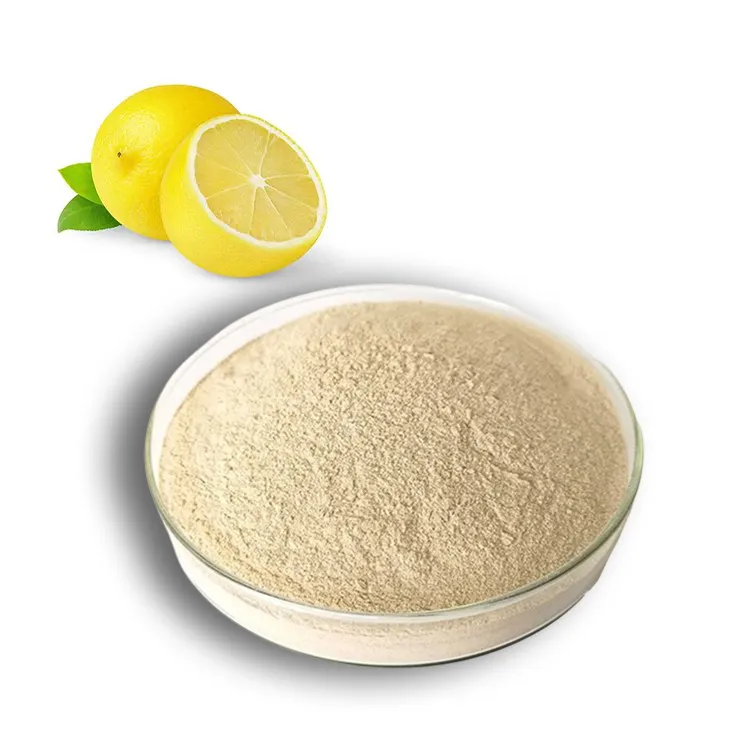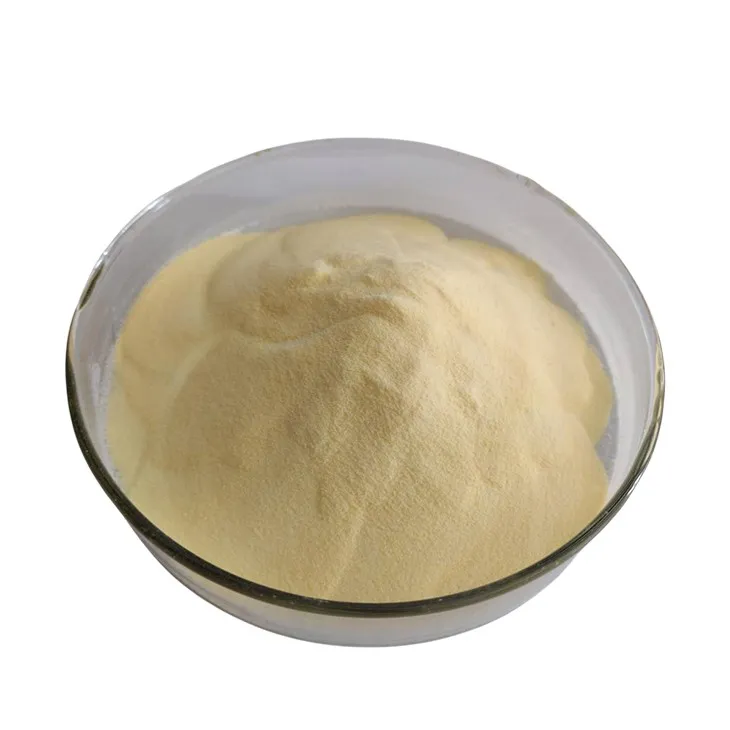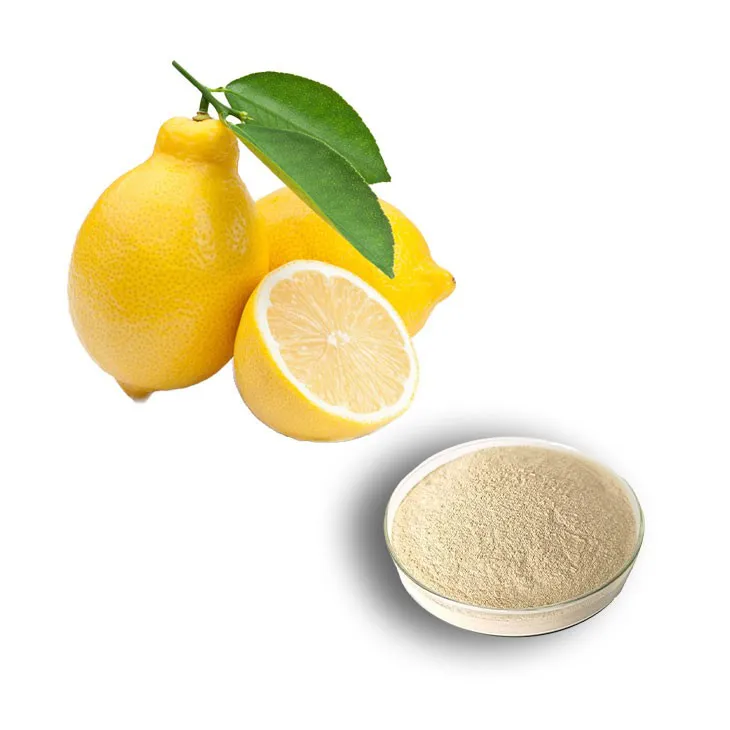- 0086-571-85302990
- sales@greenskybio.com
Does lemon extract have benefits for diabetes? Are these all safe and applicable for diabetic patients?
2024-11-13

1. Introduction
Diabetes is a chronic metabolic disorder that affects millions of people worldwide. Managing blood sugar levels is crucial for diabetics. In recent years, there has been growing interest in the potential benefits of natural substances, such as Lemon Extract, for diabetes management. Lemon Extract contains various bioactive compounds that may have positive effects on diabetes. However, it is essential to determine whether these effects are indeed beneficial and whether Lemon Extract is safe and suitable for all diabetic patients. This article will conduct an in - depth analysis from multiple perspectives.

2. Nutritional Composition of Lemon Extract
Lemon extract is rich in several nutrients and bioactive compounds. Some of the key components include:
- Vitamin C: It is a powerful antioxidant that helps in protecting cells from oxidative stress. In diabetes, oxidative stress is often increased, and vitamin C may play a role in reducing it.
- Flavonoids: These are plant - derived compounds with antioxidant, anti - inflammatory, and potential anti - diabetic properties. For example, Hesperidin and eriocitrin are flavonoids found in lemon extract that have been studied for their beneficial effects on health.
- Citric Acid: It gives lemons their characteristic sour taste. Citric acid may have some impact on metabolism, although its direct role in diabetes management is still being explored.

3. Potential Benefits for Diabetes
3.1 Blood Sugar Regulation
Some studies suggest that lemon extract may help in regulating blood sugar levels. The flavonoids in lemon extract may improve insulin sensitivity. Insulin is a hormone that plays a crucial role in allowing cells to take up glucose from the bloodstream. When insulin sensitivity is improved, cells can more effectively use glucose, thereby helping to lower blood sugar levels. For example, a study on animals showed that certain flavonoids in lemon extract enhanced insulin - mediated glucose uptake in muscle cells.
3.2 Antioxidant and Anti - Inflammatory Effects
Diabetes is associated with increased oxidative stress and inflammation in the body. The antioxidant and anti - inflammatory properties of lemon extract can be beneficial in this regard.
- As mentioned earlier, vitamin C and flavonoids are antioxidants. They can neutralize free radicals, which are unstable molecules that can damage cells and contribute to the development of diabetes - related complications such as nerve damage and cardiovascular problems.
- The anti - inflammatory effects of lemon extract may help in reducing chronic inflammation in the body. Inflammation is often involved in insulin resistance, and by reducing it, lemon extract may indirectly improve blood sugar control.
3.3 Weight Management
Maintaining a healthy weight is important for diabetes management. Some components in lemon extract may contribute to weight management:
- Citric acid may play a role in increasing metabolism. A faster metabolism can help the body burn more calories, which is beneficial for weight loss or maintenance. However, the effect of citric acid on metabolism is relatively small and may not be the sole factor in significant weight change.
- The flavonoids in lemon extract may also affect appetite regulation. By reducing appetite, it can potentially lead to a decrease in calorie intake, which is helpful for diabetic patients who need to control their weight.

4. Safety Considerations
4.1 General Safety
Lemon extract is generally considered safe for consumption in moderate amounts. However, there are some potential concerns:
- Allergic Reactions: Some individuals may be allergic to lemons or components in lemon extract. Allergic symptoms can range from mild, such as skin rashes and itching, to more severe reactions like difficulty breathing. Diabetic patients with known lemon allergies should obviously avoid lemon extract.
- Gastrointestinal Issues: In some cases, excessive consumption of lemon extract may cause gastrointestinal problems. This can include symptoms such as heartburn, acid reflux, and stomach cramps. Diabetic patients with pre - existing gastrointestinal conditions should be cautious when using lemon extract.
4.2 Interaction with Medications
Diabetic patients often take medications to manage their blood sugar levels. There is a possibility of interactions between lemon extract and these medications:
- Some diabetic medications work by increasing insulin secretion or improving insulin sensitivity. Lemon extract, with its potential to also affect insulin sensitivity, may interact with these medications. This interaction could potentially lead to hypoglycemia (low blood sugar levels) if not properly monitored. For example, if a diabetic patient is taking sulfonylurea drugs and also consuming large amounts of lemon extract, there is an increased risk of hypoglycemia.
- Lemon extract may also interact with other medications that diabetic patients might be taking for related conditions, such as blood pressure medications or cholesterol - lowering drugs. It is important for diabetic patients to consult their healthcare providers before starting to use lemon extract regularly, especially if they are on multiple medications.

5. Suitability for Different Types of Diabetic Patients
5.1 Type 1 Diabetes
Type 1 diabetes is an autoimmune disease where the body's immune system attacks and destroys the insulin - producing cells in the pancreas. For type 1 diabetic patients:
- Lemon extract may still offer some benefits in terms of its antioxidant and anti - inflammatory properties. These can help in reducing the risk of complications associated with type 1 diabetes, such as cardiovascular disease and nerve damage.
- However, since type 1 diabetics rely on insulin injections for blood sugar control, the potential interaction between lemon extract and insulin or other medications needs to be carefully monitored. Any changes in blood sugar levels should be reported to the healthcare provider immediately.
5.2 Type 2 Diabetes
Type 2 diabetes is mainly characterized by insulin resistance and relative insulin deficiency. For type 2 diabetic patients:
- The potential of lemon extract to improve insulin sensitivity may be more relevant. The flavonoids in lemon extract may assist in enhancing the body's response to insulin, which is a key aspect of type 2 diabetes management.
- As with type 1 diabetics, the safety aspects regarding potential allergies, gastrointestinal issues, and interactions with medications need to be considered. Weight management is also an important factor for type 2 diabetics, and the potential benefits of lemon extract in this regard may be beneficial.
6. Dosage and Administration
There is no standardized dosage of lemon extract for diabetes management. However, if diabetic patients decide to incorporate lemon extract into their diet or treatment plan, the following guidelines can be considered:
- Start with a small amount: Begin with a small dose of lemon extract, such as a few drops in a glass of water, and observe for any adverse reactions.
- Gradual Increase: If no adverse reactions occur, the dose can be gradually increased over time. But it should still be within a reasonable range.
- Monitoring: Continuously monitor blood sugar levels, as well as any signs of allergic reactions or gastrointestinal problems. If there are any significant changes in blood sugar levels or the occurrence of unwanted symptoms, consult a healthcare provider immediately.
7. Conclusion
Lemon extract has potential benefits for diabetes in terms of blood sugar regulation, antioxidant and anti - inflammatory effects, and weight management. However, it is not without risks. Diabetic patients need to consider safety aspects, including potential allergic reactions, gastrointestinal issues, and interactions with medications. Different types of diabetic patients may respond differently to lemon extract, and proper monitoring is essential. Overall, while lemon extract shows promise as a complementary approach in diabetes management, it should not replace conventional medical treatment. Diabetic patients should always consult their healthcare providers before using lemon extract on a regular basis.
FAQ:
Question 1: What are the potential benefits of lemon extract for diabetes?
Lemon extract may have several potential benefits for diabetes. It contains compounds like flavonoids which have antioxidant properties. These antioxidants may help reduce oxidative stress in the body, which is often elevated in diabetic patients. Additionally, lemon extract might assist in regulating blood sugar levels. Some studies suggest that certain components in lemons could improve insulin sensitivity, although more research is needed to fully confirm this.
Question 2: How does lemon extract affect blood sugar levels?
The exact mechanism by which lemon extract affects blood sugar levels is not fully understood. However, it is believed that the bioactive compounds in lemon extract, such as polyphenols, may interact with cells in the pancreas that secrete insulin. This interaction could potentially enhance insulin secretion or improve the body's response to insulin, thereby helping to regulate blood sugar. But again, more in - depth research is required to establish a clear cause - and - effect relationship.
Question 3: Are there any side effects of lemon extract for diabetic patients?
For most diabetic patients, lemon extract is generally safe when consumed in moderation. However, some people may be allergic to lemons, which can cause allergic reactions such as skin rashes, itching, or swelling. Also, excessive consumption of lemon extract may cause gastrointestinal discomfort, such as acid reflux or stomach irritation, especially in those with sensitive stomachs. But overall, when used appropriately, side effects are relatively rare.
Question 4: Can lemon extract replace diabetes medications?
No, lemon extract cannot replace diabetes medications. While lemon extract may have some beneficial effects on blood sugar levels and overall health in diabetic patients, it is not a substitute for prescribed medications. Diabetes medications are specifically designed to manage blood sugar levels effectively and are often based on scientific research and clinical trials. Lemon extract can be considered as a complementary addition to a diabetes management plan, but it should not be used as the sole treatment.
Question 5: How much lemon extract is safe for diabetic patients to consume?
There is no one - size - fits - all answer to how much lemon extract is safe for diabetic patients. It depends on various factors such as the individual's overall health, the form of lemon extract (e.g., fresh lemon juice, concentrated extract), and any existing medical conditions. In general, moderate consumption, such as a few tablespoons of fresh lemon juice per day, is likely to be safe. However, it is always advisable to consult a healthcare provider before making significant changes to the diet or adding new supplements like lemon extract.
Related literature
- The Role of Citrus Fruits in Diabetes Management"
- "Antioxidant Compounds in Lemons and Their Potential Impact on Diabetic Health"
- "Lemon Extract and Blood Sugar Regulation: Current Research Findings"
- ▶ Hesperidin
- ▶ Citrus Bioflavonoids
- ▶ Plant Extract
- ▶ lycopene
- ▶ Diosmin
- ▶ Grape seed extract
- ▶ Sea buckthorn Juice Powder
- ▶ Fruit Juice Powder
- ▶ Hops Extract
- ▶ Artichoke Extract
- ▶ Mushroom extract
- ▶ Astaxanthin
- ▶ Green Tea Extract
- ▶ Curcumin
- ▶ Horse Chestnut Extract
- ▶ Other Product
- ▶ Boswellia Serrata Extract
- ▶ Resveratrol
- ▶ Marigold Extract
- ▶ Grape Leaf Extract
- ▶ New Product
- ▶ Aminolevulinic acid
- ▶ Cranberry Extract
- ▶ Red Yeast Rice
- ▶ Red Wine Extract
-
Bitter Melon Extract
2024-11-13
-
Uridine-5'-monophosphate Disodium salt
2024-11-13
-
Mango flavored powder
2024-11-13
-
Europen Bilberry Extract
2024-11-13
-
Epimedium extract powder
2024-11-13
-
Sugarcane Extract
2024-11-13
-
Curcuma Longa Extract
2024-11-13
-
Calendula Extract
2024-11-13
-
Feverfew Extract
2024-11-13
-
Tinospora cordifolia extract
2024-11-13





















